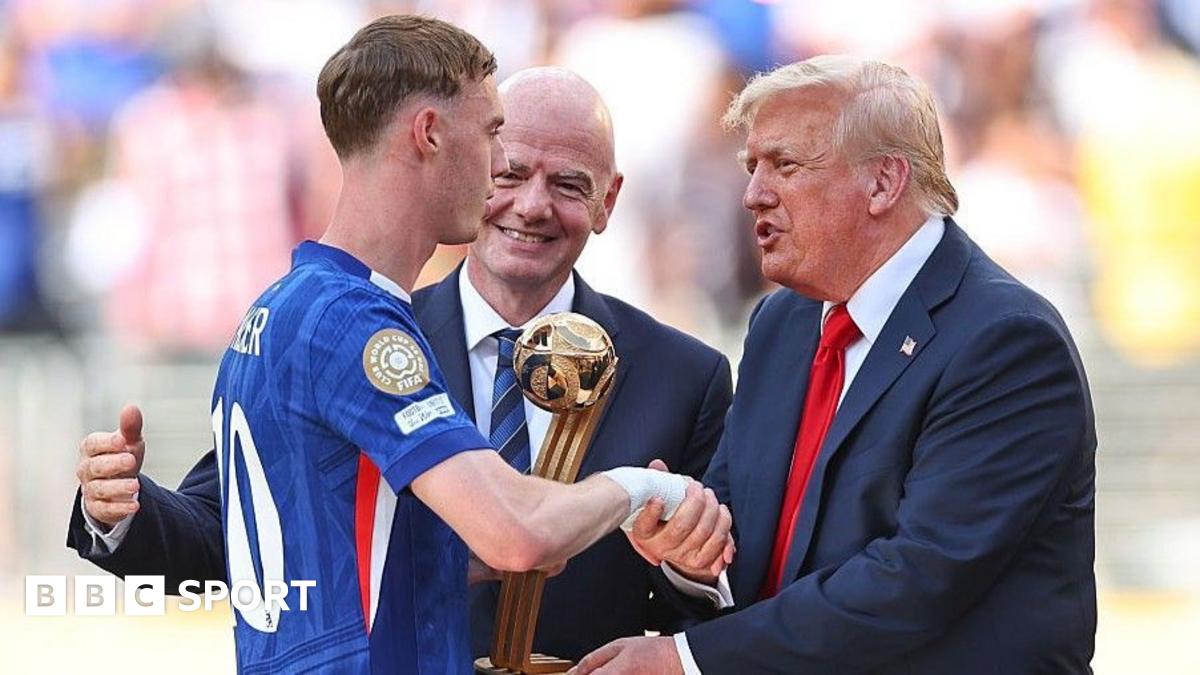'Premier League will not be cut to 18 clubs'

Premier League Rejects Proposal to Reduce Number of Clubs Amid Calendar Clashes
The Premier League will maintain its current format of 20 clubs, chief executive Richard Masters has confirmed, dismissing suggestions of a reduction to 18 teams. This decision comes amid escalating tensions between the league and FIFA regarding the increasingly congested international football calendar and its impact on player welfare.
With the new Premier League season set to commence on August 15th, initiating an 11-month stretch culminating in the 2026 World Cup final in the United States on July 19th, the debate surrounding fixture congestion has intensified. Concerns about player burnout, exacerbated by FIFA's expansion of the Club World Cup and the upcoming 48-team World Cup, are at the forefront of the discussion.
Masters Voices Concerns Over FIFA's Consultation Process
Masters has openly criticized FIFA's handling of calendar adjustments, siding with players' union FIFPro in asserting a lack of meaningful consultation with key stakeholders. He argues that the expansion of international competitions, while potentially beneficial for global football development, is placing undue strain on domestic leagues and player well-being.
"I am all for the growth of the game and the exciting competitions our clubs can participate in - but not at the expense of domestic football," Masters told BBC Sport. "I don't think we should be forced into that decision [reducing the number of clubs]."
The Premier League's stance contrasts with France's Ligue 1, which reduced its number of teams from 20 to 18 for the 2023-24 season. While acknowledging UEFA's expansion of its club competitions, which has already led to the scrapping of FA Cup replays and the scheduling of Carabao Cup third-round matches across two midweeks, Masters emphasizes that the major European leagues at least had some input into those decisions.
Historical Context: Premier League Stability Since 1995
Since reducing from 22 to 20 teams for the 1994-95 season, the Premier League has maintained a consistent format of 380 matches per season. This stability, Masters argues, is now threatened by external pressures stemming from the expansion of European and global competitions. He warns that the current trajectory risks prioritizing international football at the expense of the domestic game.
"Since 1994 the Premier League has been 380 matches, 20 clubs. We haven't changed shape at all," Masters stated. "Now we are now starting to redesign our domestic calendar at the altar of European and global expansion."
Expert Analysis: Balancing Global Ambition with Domestic Integrity
Football finance expert Kieran Maguire, a lecturer at the University of Liverpool, believes the Premier League's stance is understandable given its commercial dominance. "The Premier League generates significantly more revenue than other domestic leagues, and reducing the number of matches would inevitably impact broadcast deals and overall income," Maguire told BBC Sport. "However, they also need to be mindful of the long-term consequences of player burnout and the potential impact on the quality of the product."
He added, "The key lies in finding a sustainable balance between global ambition and the integrity of the domestic game. This requires a genuine and collaborative dialogue between FIFA, UEFA, and the major leagues to address the scheduling challenges and prioritize player welfare."
Club Concerns and Summer Series Defended
Masters acknowledged the frustration of clubs like Chelsea and Manchester City, who sought a delayed start to the new season following their participation in the Club World Cup. He highlighted the "butterfly impact" of decisions made by external footballing bodies on domestic leagues, creating conflicts with clubs regarding player rest and preparation.
Despite some reported discontent, Masters defended the Premier League's Summer Series in the United States, emphasizing its commercial benefits and its role in promoting the league internationally. He expressed confidence that the tournament, which began in 2003 as the Asia Trophy, would return in 2027.
The Saudi Pro League and the Future of the Premier League
Addressing the growing influence of the Saudi Pro League, Masters acknowledged the increasingly competitive environment but remained optimistic about the Premier League's future. He highlighted the league's inherent competitiveness, with clubs aspiring to rise up the table and competition for European places and the title remaining fierce.
"I am not oblivious to the fact the Premier League exists in a highly competitive environment," Masters said. "We always keep an eye on what is going on and clearly the Saudi Pro League is developing and moving forward. But so is the Premier League."
Ultimately, Masters believes that as long as the Premier League maintains its competitive edge and continues to attract global audiences, it will remain a dominant force in world football. However, this requires a proactive approach to addressing the challenges posed by fixture congestion and the evolving global landscape.
Originally sourced from: BBC Sport Football
